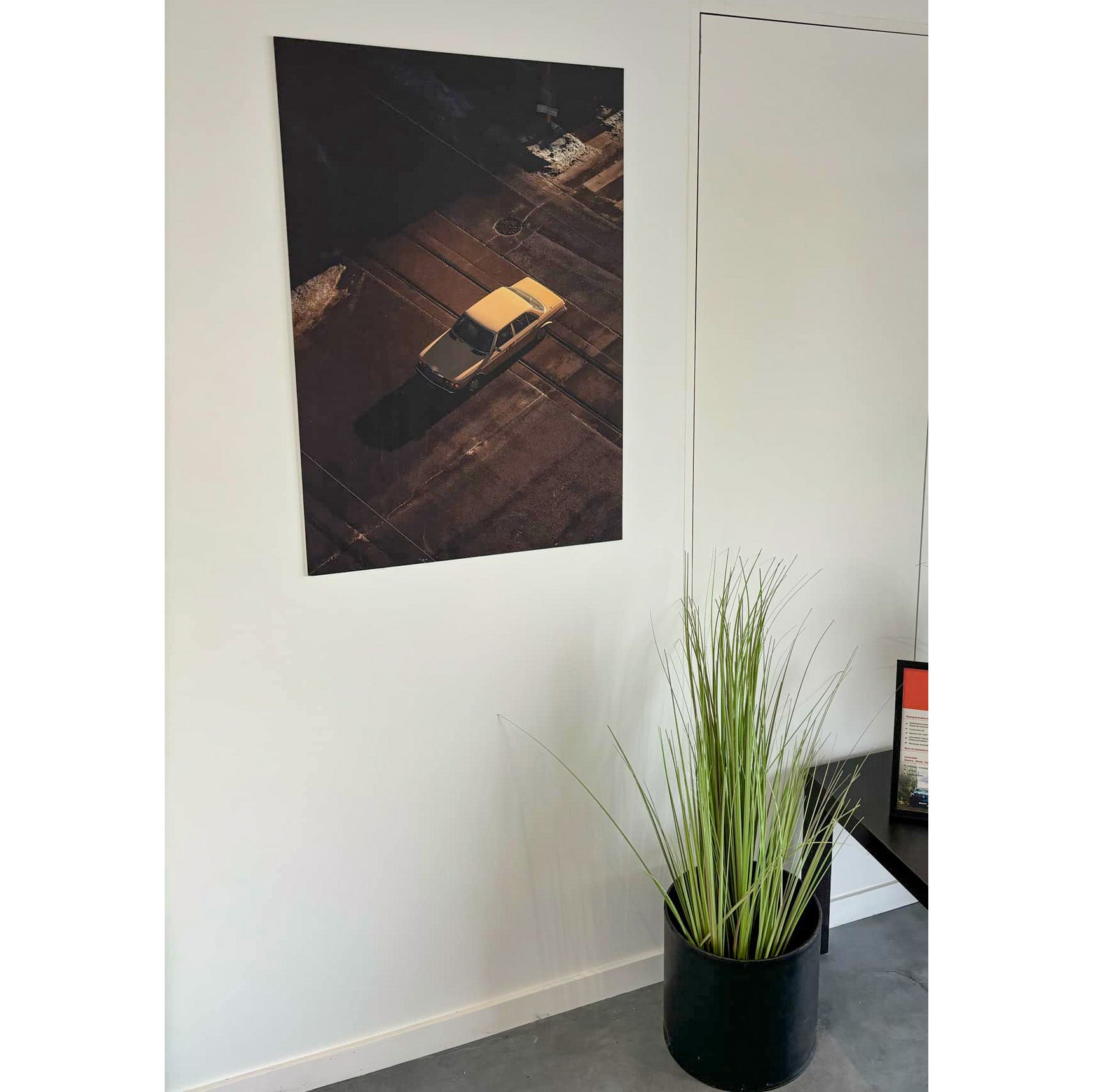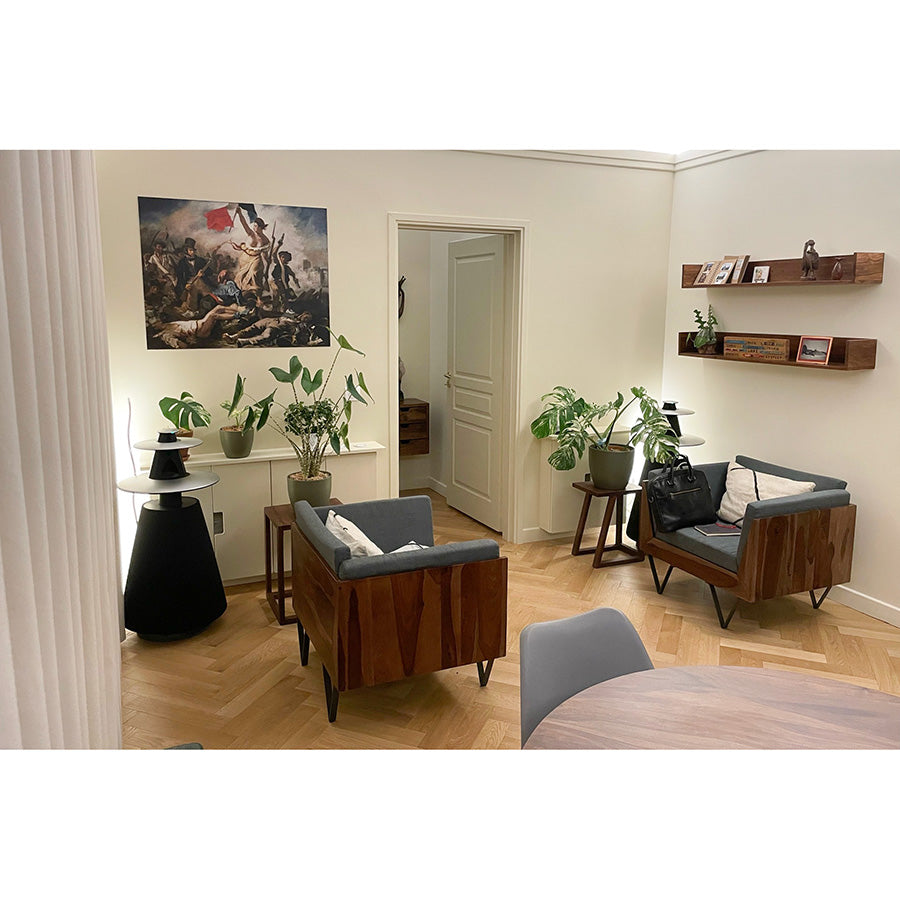Art print | Charlotte Fredrika Sparre - Antoine Pesne


View from behind

Frame (optional)
Charlotte Fredrika Sparre - Antoine Pesne – Captivating Introduction
In the vast panorama of art history, certain works stand out for their ability to capture not only the appearance of a subject but also the very essence of their being. "Charlotte Fredrika Sparre - Antoine Pesne" is a perfect example. This piece goes beyond a simple portrait; it evokes a period, a personality, and a profound emotion. Contemplating this work, the viewer is transported to the world of 18th-century Prussian court, where nobility was both a subject of fascination and critique. Charlotte's gaze, both serene and penetrating, seems to invite the observer to discover the secrets of her existence while revealing Antoine Pesne's technical mastery.
Style and uniqueness of the work
The style of the piece is characterized by delicacy and finesse, emblematic of Rococo painting. Pesne, a renowned portrait artist, succeeds in harmoniously blending light and shadow, creating an intimate atmosphere around his model. The details of the clothing, with their rich textures and delicate colors, demonstrate meticulous attention to the elements composing the scene. Charlotte's slightly tilted pose, along with the blurred background, helps focus attention on her expressive face. This stylistic choice not only beautifies the portrait but also emphasizes its psychological depth, making the work strikingly modern despite its age.
The artist and his influence
Antoine Pesne, born in 1683 in Berlin, established himself as one of the leading portraitists of his time. His artistic journey is marked by diverse influences, ranging from Flemish masters to Italian traditions. Pesne had the opportunity to work for influential personalities of his era, which enriched his style and technique. His approach to portraiture goes beyond mere physical representation; he seeks to capture the soul and personality of his subjects. This pursuit of psychological truth in portraiture has inspired many artists, both in his time and in subsequent centuries. His work "Charlotte Fredrika Sparre" is a testament to this ambition, revealing

Matte finish

View from behind

Frame (optional)
Charlotte Fredrika Sparre - Antoine Pesne – Captivating Introduction
In the vast panorama of art history, certain works stand out for their ability to capture not only the appearance of a subject but also the very essence of their being. "Charlotte Fredrika Sparre - Antoine Pesne" is a perfect example. This piece goes beyond a simple portrait; it evokes a period, a personality, and a profound emotion. Contemplating this work, the viewer is transported to the world of 18th-century Prussian court, where nobility was both a subject of fascination and critique. Charlotte's gaze, both serene and penetrating, seems to invite the observer to discover the secrets of her existence while revealing Antoine Pesne's technical mastery.
Style and uniqueness of the work
The style of the piece is characterized by delicacy and finesse, emblematic of Rococo painting. Pesne, a renowned portrait artist, succeeds in harmoniously blending light and shadow, creating an intimate atmosphere around his model. The details of the clothing, with their rich textures and delicate colors, demonstrate meticulous attention to the elements composing the scene. Charlotte's slightly tilted pose, along with the blurred background, helps focus attention on her expressive face. This stylistic choice not only beautifies the portrait but also emphasizes its psychological depth, making the work strikingly modern despite its age.
The artist and his influence
Antoine Pesne, born in 1683 in Berlin, established himself as one of the leading portraitists of his time. His artistic journey is marked by diverse influences, ranging from Flemish masters to Italian traditions. Pesne had the opportunity to work for influential personalities of his era, which enriched his style and technique. His approach to portraiture goes beyond mere physical representation; he seeks to capture the soul and personality of his subjects. This pursuit of psychological truth in portraiture has inspired many artists, both in his time and in subsequent centuries. His work "Charlotte Fredrika Sparre" is a testament to this ambition, revealing









